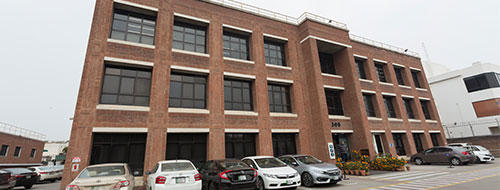Don't Fall for Osteoporosis

o exceed bone formation and if we did not reach optimal bone mass during the bone formation years, we are more likely to develop Osteoporosis.
In ageing adults, bone loss is associated with marked increase in fracture rates in both sexes, but particularly in post-menopausal women. Therefore it is particularly important to consume required amount of Calcium and Vitamin D (that aids calcium absorption and is also synthesized by our body through exposure to sunlight) throughout our lives before age 30 to make our bones stronger and to modify the rate of bone loss associated with ageing.
While bone loss is a natural phenomenon, scientific evidence shows that good nutritional and lifestyle habits can slow down the process and help maintain healthy bones. Moreover it is never too late and we can reduce the ill effects of bone loss by ensuring requisite Calcium intake.
Getting the Power of Calcium
Adult men and women need to take 1000mg of Calcium daily. Women after menopause and men from age 50 need even more Calcium, 1200mg every day. (Source: Dietary Reference Intakes for Calcium, National Academy of Sciences, 1997)
If you choose to take Calcium supplements, remember to check with your doctor and know that your body can only absorb a little Calcium at a time. Take your supplements in two or three doses, preferably with a meal, and make sure the supplement has Vitamin D to help your body absorb Calcium. And remember, the best way to stock up your Calcium is the natural way - by choosing Calcium rich food products like milk.
Drink milk
Our bones are made of Calcium. Listen to what your grandmother says and include milk, yogurt or cheese (except cottage cheese) to get your dose of Calcium. Many milk products are also fortified with Vitamin D, which helps your body absorb Calcium.
Eat fish
Many kinds of fish, such as tinned sardines and salmon, are rich in Calcium. Oily fish are rich in Vitamin D.
Eat greens
Leafy green vegetables are good sources of Calcium, as well as Vitamin K and Potassium which reduce Calcium loss from bones. So try to include broccoli, mustard greens (sarson ka saag) and other leafy vegetables in your diet.
Protein in moderation
High intake of protein rich foods such as meat, fish and eggs can also result in loss of Calcium to a certain extent. Try consuming them in moderation.
Reduce caffeine
Going over three cups of coffee a day can cause Calcium to be lost more readily. Enjoy your coffee but in moderation!
Work it out
Regular exercise stops bone mass loss and may be one of the few ways to build bones as you grow older, but not just any exercise: your bones and muscles have to work against gravity to build up your bones, so swimming does not help in building bones. Instead, at least thrice a week spend 30 minutes walking, running, lifting weights, climbing stairs or playing sports. It can also improve your posture and flexibility and reduce the risk of falls.
Get tested
Bone density tests are the only way to diagnose Osteoporosis and gauge your chances of getting fractures. Women who have passed menopause and have risk factors, and all women over 65, should get scanned.
Get measured
Keep track of your height. If you lose an inch or two over the course of a year, it may be a sign of Osteoporosis.
Get treatment
Ask your doctor about other illnesses that might reduce bone density and what you can do about it.
Do not smoke
Smokers have a lower bone mineral density. This translates into twice the risk of spinal fracture and a 50% higher risk of hip fracture. Moreover, fractures heal slower or may even heal improperly.
Cheer up
Do not let depression linger. It causes your body to produce cortisol, a hormone that saps Calcium from your bones.

